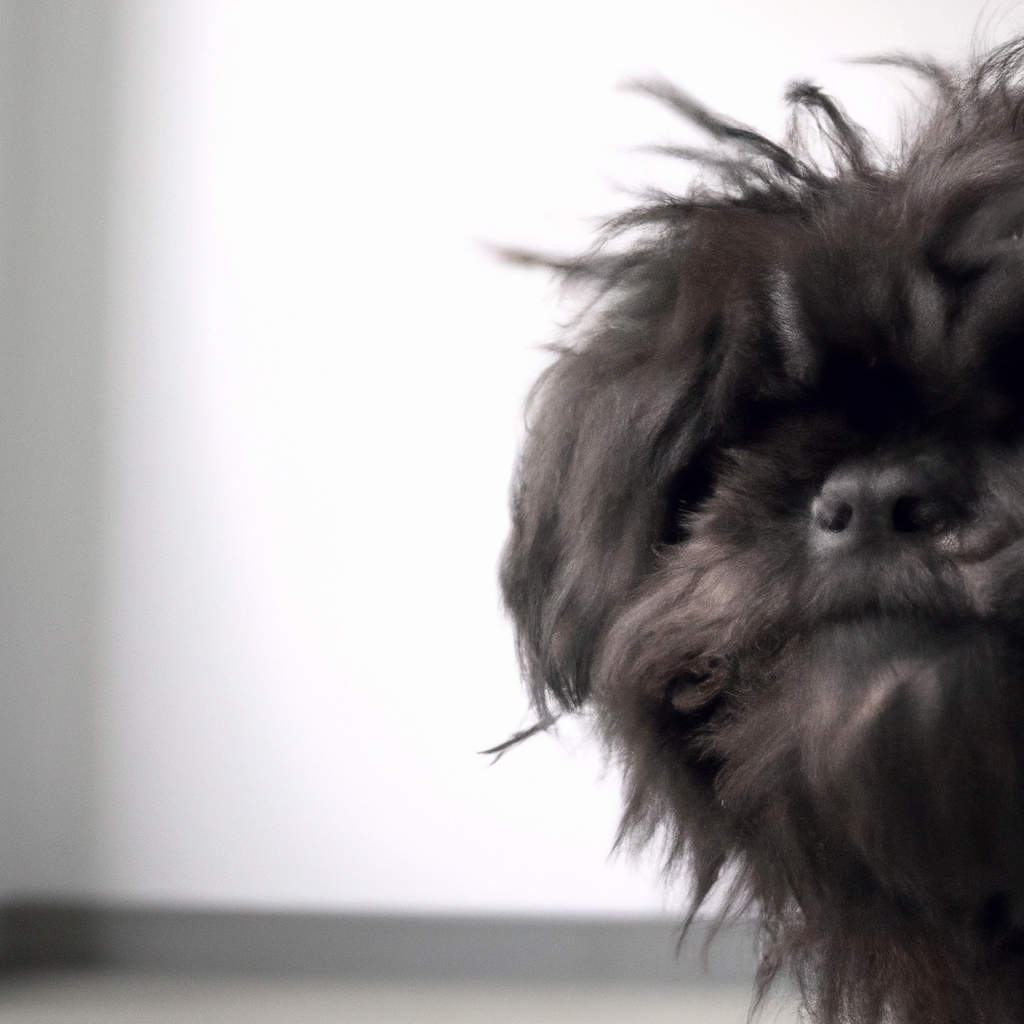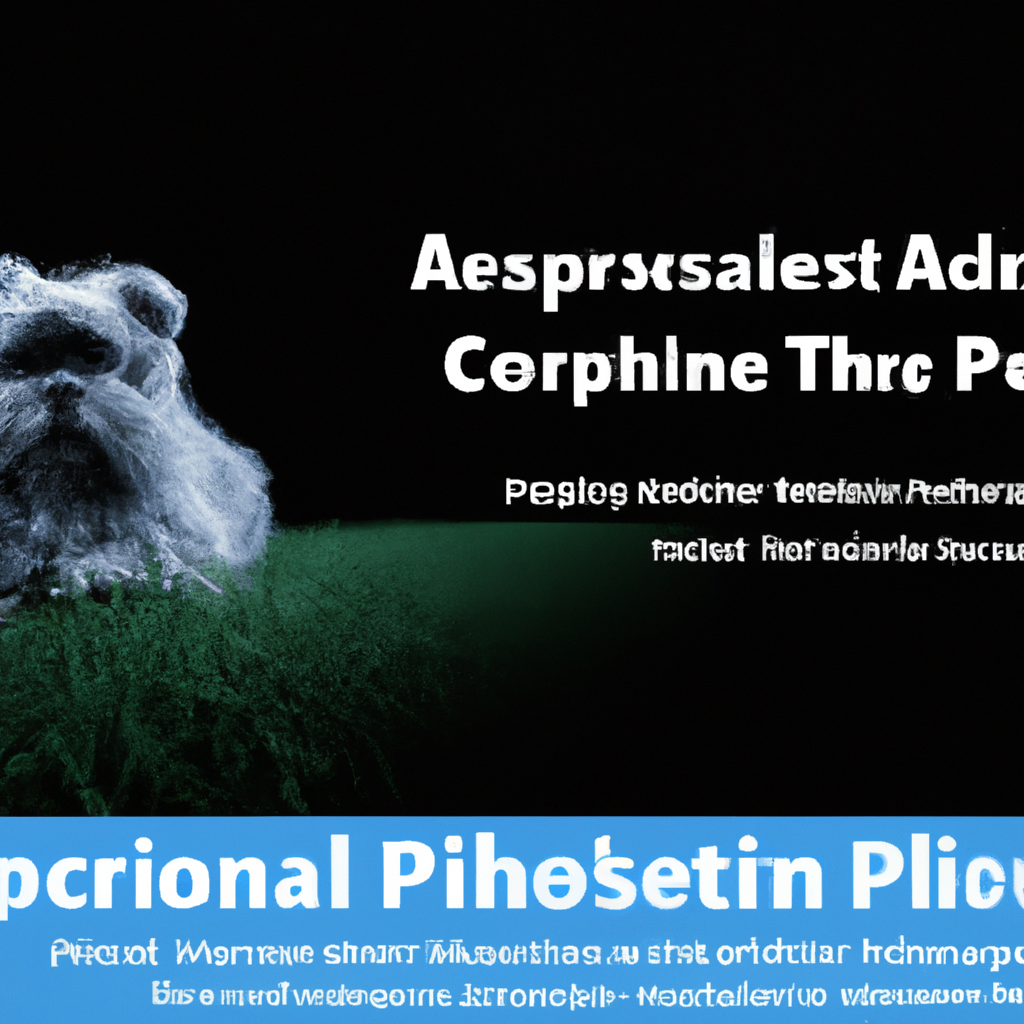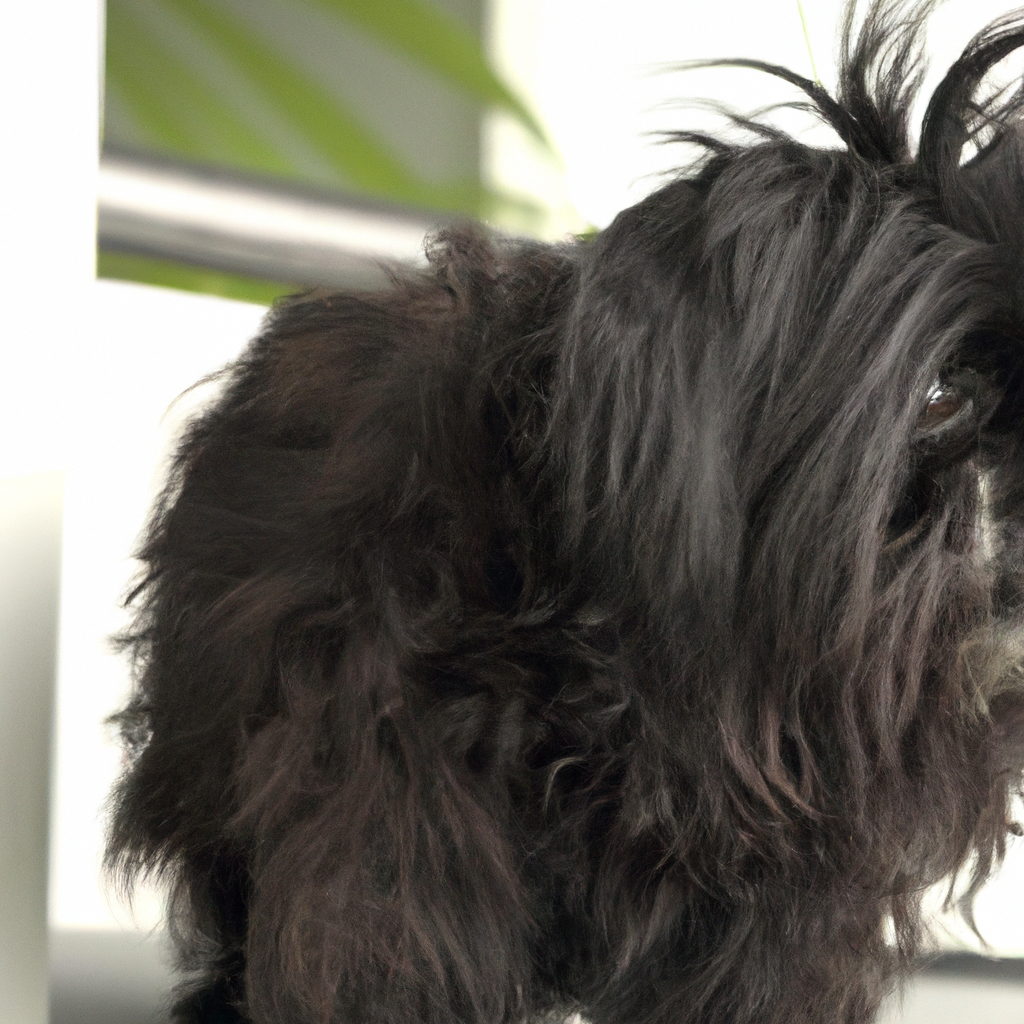The following guide provides comprehensive information about the health issues commonly associated with the Affenpinscher breed. This small, terrier-like dog breed is generally healthy, but like all breeds, they can be prone to certain health conditions. Understanding these potential health problems can help owners provide the best care for their Affenpinscher. This guide will cover everything from genetic predispositions, common illnesses, preventive measures, and treatment options, offering a valuable resource for maintaining your Affenpinscher’s health and wellbeing.
Understanding Common Affenpinscher Health Problems
The Affenpinscher, also known as the “Monkey Terrier” due to its primate-like appearance, is a small but sturdy dog breed known for its playful and adventurous nature. While these dogs are generally healthy, they are prone to certain health issues that potential owners should be aware of. This article aims to provide a helpful guide to understanding common Affenpinscher health problems.
Firstly, let’s talk about the Affenpinscher’s eyes. This breed is susceptible to a condition known as cataracts, which is characterized by a cloudiness in the lens of the eye, leading to impaired vision. Regular vet check-ups are crucial to detect this condition early and manage it effectively. Another eye-related issue that Affenpinschers may face is Progressive Retinal Atrophy (PRA), a degenerative eye disorder that can eventually lead to blindness. While there’s no cure for PRA, early detection can help manage the condition and slow its progression.
Moving on, let’s discuss the Affenpinscher’s heart. Like many small dog breeds, Affenpinschers are prone to a condition called Patent Ductus Arteriosus (PDA). This is a congenital heart defect where a blood vessel that normally closes shortly after birth remains open, causing strain on the heart and potentially leading to heart failure. Surgery is usually required to correct this condition, so it’s important to have your Affenpinscher regularly checked by a vet to catch any heart abnormalities early.
Next, we’ll delve into the Affenpinscher’s skeletal system. Hip dysplasia, a condition where the hip joint doesn’t fit together properly, is a common issue in this breed. This can lead to pain, difficulty moving, and in severe cases, arthritis. Regular exercise and a healthy diet can help manage this condition, but in some cases, surgery may be necessary. Another skeletal issue that can affect Affenpinschers is Legg-Calve-Perthes disease, a condition that affects the hip joint, leading to limping and muscle wastage. Early detection and treatment, often involving surgery, can greatly improve the prognosis for dogs with this condition.
Lastly, let’s touch on the Affenpinscher’s skin. This breed can suffer from a condition known as skin allergies, which can be triggered by a variety of factors including certain foods, dust mites, or pollen. Symptoms can include itching, redness, and skin infections. Regular grooming and a hypoallergenic diet can help manage this condition, but in severe cases, medication may be required.
In conclusion, while the Affenpinscher is a generally healthy breed, they are prone to certain health issues including eye disorders, heart defects, skeletal problems, and skin allergies. Regular vet check-ups are crucial for early detection and effective management of these conditions. Remember, a healthy Affenpinscher is a happy Affenpinscher, and understanding these common health problems can help ensure your furry friend lives a long, happy, and healthy life.
A Comprehensive Guide to Affenpinscher Dental Health
Affenpinschers, affectionately known as “Monkey Dogs,” are a small breed known for their playful and adventurous spirit. However, like all breeds, they have their share of health issues, one of the most common being dental problems. Understanding these issues and how to prevent them is crucial for any Affenpinscher owner who wants to ensure their furry friend lives a long, healthy life.
Dental health in Affenpinschers is often overlooked, but it’s just as important as any other aspect of their health. Dental disease can lead to a host of other problems, including heart disease and kidney disease. It’s not just about bad breath and yellow teeth; it’s about overall health and longevity.
Affenpinschers are particularly prone to dental issues due to their small size and the structure of their mouths. Their teeth are often crowded together, making it easier for plaque and tartar to build up. This buildup can lead to periodontal disease, a serious condition that can cause tooth loss and even damage to the heart and kidneys if left untreated.
So, how can you prevent these issues and ensure your Affenpinscher has a healthy mouth? The first step is regular brushing. Just like humans, dogs need their teeth brushed regularly to remove plaque and prevent tartar buildup. Use a toothbrush designed for dogs and a toothpaste that’s safe for them to swallow. Start slow, letting your dog get used to the sensation, and gradually increase the frequency until you’re brushing their teeth daily.
In addition to brushing, consider incorporating dental chews into your Affenpinscher’s routine. These chews are designed to help clean your dog’s teeth as they chew, removing plaque and tartar in the process. They’re a great supplement to brushing, but they shouldn’t be used as a replacement.
Regular vet check-ups are also crucial for maintaining your Affenpinscher’s dental health. Your vet can perform a thorough dental exam, checking for signs of periodontal disease and other issues. They can also perform professional cleanings, which are more thorough than what you can do at home and can help catch any potential problems early.
Diet can also play a role in your Affenpinscher’s dental health. Feeding your dog a balanced diet that’s appropriate for their age, size, and health status can help keep their teeth and gums healthy. Some vets even recommend specific dental diets that are designed to help clean your dog’s teeth as they eat.
In conclusion, dental health is a crucial aspect of your Affenpinscher’s overall health. By understanding the potential issues and taking steps to prevent them, you can help ensure your furry friend lives a long, healthy life. Remember, it’s not just about bad breath and yellow teeth; it’s about overall health and longevity. So, start brushing, schedule that vet check-up, and give your Affenpinscher the care they deserve.
Preventing Obesity in Affenpinschers: A Helpful Guide
Affenpinschers, affectionately known as “Monkey Dogs,” are a small breed of dog that originated in Germany. These adorable, energetic, and loyal companions are known for their distinctive appearance and playful nature. However, like all breeds, Affenpinschers are prone to certain health issues, one of which is obesity. This article will serve as a helpful guide to understanding and preventing obesity in Affenpinschers.
Obesity is a common health issue in dogs, and Affenpinschers are no exception. It’s a condition that can lead to a host of other health problems, including diabetes, heart disease, and joint issues. Therefore, it’s crucial to take steps to prevent your Affenpinscher from becoming overweight.
The first step in preventing obesity in Affenpinschers is understanding the causes. Overfeeding and lack of exercise are the primary culprits. Affenpinschers are small dogs with a big appetite, and it’s easy to overfeed them, especially with treats. Additionally, while they are energetic and love to play, they also enjoy their downtime and can become couch potatoes if not encouraged to exercise regularly.
To prevent overfeeding, it’s essential to understand how much food your Affenpinscher needs. The amount of food a dog requires depends on its size, age, and activity level. Generally, an adult Affenpinscher needs about half a cup to one cup of high-quality dry dog food per day, divided into two meals. Puppies require more frequent feedings. However, these are general guidelines, and it’s always best to consult with your vet to determine the appropriate amount for your specific dog.
Treats are another area where it’s easy to overdo it. While it’s fine to give your Affenpinscher treats occasionally, they should make up no more than 10% of your dog’s daily caloric intake. Opt for healthy treats like pieces of fruits and vegetables, and always measure out the treats to ensure you’re not giving too much.
Exercise is another crucial component in preventing obesity in Affenpinschers. These dogs are energetic and need regular physical activity to stay healthy. Aim for at least 30 minutes to an hour of exercise per day. This can include walks, playtime in the yard, or even indoor games. Remember, exercise isn’t just good for your Affenpinscher’s physical health; it’s also essential for their mental well-being.
Regular vet check-ups are also vital in preventing obesity in Affenpinschers. Your vet can monitor your dog’s weight and provide guidance on diet and exercise. They can also catch any potential health issues early, before they become serious problems.
In conclusion, preventing obesity in Affenpinschers involves a combination of a balanced diet, regular exercise, and regular vet check-ups. By understanding the causes of obesity and taking proactive steps to prevent it, you can help ensure your Affenpinscher lives a long, healthy, and happy life. Remember, every dog is unique, and what works for one Affenpinscher may not work for another. Always consult with your vet to create a health plan tailored to your specific dog’s needs.
Affenpinscher Hip Dysplasia: Causes, Symptoms, and Treatment

Affenpinschers, affectionately known as “Monkey Dogs,” are small, sturdy dogs known for their playful and adventurous nature. However, like any breed, they are susceptible to certain health issues. One such issue is hip dysplasia, a common skeletal condition often seen in dogs. Understanding the causes, symptoms, and treatment options for this condition can help Affenpinscher owners ensure their furry friends live a long, healthy, and happy life.
Hip dysplasia is a genetic condition, meaning it’s passed down from parent to puppy. It occurs when the ball and socket of the hip joint don’t fit together properly, leading to a gradual deterioration and eventual loss of function of the joint itself. While it’s more common in larger breeds, small dogs like Affenpinschers can also be affected.
The symptoms of hip dysplasia can vary greatly from dog to dog. Some dogs may show signs early in life, while others may not show any signs until they reach their senior years. Common symptoms include decreased activity, difficulty or reluctance to rise, jump, run, or climb stairs, lameness in the hind end, swaying gait, and loss of thigh muscle mass. If your Affenpinscher shows any of these signs, it’s important to consult with a veterinarian as soon as possible.
Diagnosing hip dysplasia involves a thorough physical examination by a vet, including palpation of the hip joints and observing the dog’s gait. X-rays are usually necessary to confirm the diagnosis and assess the severity of the condition.
Once diagnosed, the treatment for hip dysplasia in Affenpinschers is typically multi-faceted and depends on the severity of the condition. For mild cases, lifestyle modifications such as weight management, controlled exercise, and physical therapy can help manage symptoms and slow the progression of the disease. Non-steroidal anti-inflammatory drugs (NSAIDs) can also be used to control pain and inflammation.
In more severe cases, surgical intervention may be necessary. There are several surgical options available, including total hip replacement and femoral head ostectomy (FHO), where the head of the femur is removed to alleviate pain. The best surgical option will depend on the individual dog’s age, size, and overall health.
While hip dysplasia can be a daunting diagnosis, it’s important to remember that with proper management and care, many dogs with this condition can lead happy, fulfilling lives. Regular check-ups with a vet are crucial to monitor the progression of the disease and adjust treatment as necessary.
Prevention is always better than cure. While it’s impossible to completely prevent hip dysplasia due to its genetic nature, there are steps you can take to reduce your Affenpinscher’s risk. Ensuring your dog maintains a healthy weight, providing a diet rich in nutrients necessary for bone health, and avoiding excessive or high-impact exercise during your dog’s growth period can all help.
In conclusion, while hip dysplasia is a serious health issue that can affect Affenpinschers, understanding the causes, symptoms, and treatment options can help you provide the best care for your furry friend. Remember, early detection and intervention are key to managing this condition and ensuring your Affenpinscher lives a long, healthy, and happy life.
Eye Health in Affenpinschers: Recognizing and Treating Common Issues
Affenpinschers, affectionately known as “Monkey Dogs,” are a small breed known for their playful and adventurous spirit. However, like all breeds, they are prone to certain health issues, particularly concerning their eyes. Understanding these common eye problems can help you keep your Affenpinscher healthy and happy.
One of the most common eye issues in Affenpinschers is Progressive Retinal Atrophy (PRA). This is a group of genetic diseases that cause the retina to deteriorate over time, leading to eventual blindness. Symptoms often start with night blindness and progress to total vision loss. Unfortunately, there’s no cure for PRA, but early detection can help manage the condition and maintain your pet’s quality of life. Regular vet check-ups and genetic testing can help identify PRA early.
Another common eye issue in Affenpinschers is cataracts. These are cloudy or opaque areas in the eye’s lens, which can cause blurry vision or even blindness if left untreated. Cataracts can develop due to aging, diabetes, or injury. The good news is that cataracts are treatable. Your vet may recommend surgery to remove the cataract and replace the lens, restoring your pet’s vision.
Corneal ulcers are also a concern for Affenpinschers. These painful sores on the cornea (the clear front surface of the eye) can be caused by injury, infection, or a lack of tear production. Symptoms include redness, squinting, excessive tearing, and sensitivity to light. If you notice these signs, it’s crucial to seek veterinary care immediately. Treatment typically involves medication to fight infection and promote healing, and in severe cases, surgery may be necessary.
Dry eye, or Keratoconjunctivitis Sicca (KCS), is another condition that can affect Affenpinschers. This occurs when the eyes don’t produce enough tears, leading to dryness, irritation, and potential damage to the cornea. Symptoms include redness, discharge, and frequent blinking. Treatment usually involves eye drops or ointments to replace the missing tears and sometimes surgery to redirect tear production.
Lastly, Affenpinschers can be prone to Distichiasis, a condition where extra eyelashes grow from the eyelid and rub against the cornea, causing irritation and discomfort. Treatment options range from plucking the offending lashes to cryotherapy or laser surgery to permanently remove them.
While these eye issues can sound scary, remember that knowledge is power. By understanding the potential health issues your Affenpinscher may face, you can be proactive in their care. Regular vet check-ups are crucial, as many of these conditions can be detected during a routine examination. If you notice any changes in your pet’s eyes, such as redness, cloudiness, or behavioral changes like squinting or rubbing their eyes, don’t hesitate to seek veterinary care.
In conclusion, while Affenpinschers are prone to certain eye health issues, with regular check-ups, early detection, and appropriate treatment, these conditions can be managed effectively. Your Affenpinscher relies on you to help them maintain their health, and with a little vigilance and care, they can continue to live a happy, active life.
Affenpinscher Heart Health: Identifying and Managing Heart Disease
Affenpinschers, affectionately known as “Monkey Dogs,” are small, energetic, and loyal companions. However, like all breeds, they are prone to certain health issues. One of the most common health problems in Affenpinschers is heart disease. Understanding the signs, symptoms, and management strategies for heart disease can help you ensure your Affenpinscher lives a long, healthy, and happy life.
Heart disease in Affenpinschers can take many forms, but the most common is a condition called mitral valve disease. This condition occurs when the mitral valve in the heart weakens, causing blood to flow backward into the heart. Over time, this can lead to an enlarged heart and, eventually, heart failure.
Identifying heart disease in your Affenpinscher early is crucial to managing the condition and prolonging your pet’s life. The symptoms of heart disease in Affenpinschers can be subtle and easy to miss, especially in the early stages. You might notice your dog coughing more than usual, especially after exercise or at night. They may also seem less energetic than usual, tire easily, or show signs of difficulty breathing. If you notice any of these symptoms, it’s important to take your Affenpinscher to the vet as soon as possible.
Your vet will likely perform a series of tests to diagnose heart disease, including a physical exam, blood tests, and imaging tests like an X-ray or ultrasound. These tests can help your vet understand the severity of your dog’s condition and develop a treatment plan.
Managing heart disease in Affenpinschers typically involves a combination of lifestyle changes and medication. Your vet may recommend a special diet to help manage your dog’s weight and reduce strain on their heart. Regular, gentle exercise can also be beneficial, but it’s important to avoid strenuous activity that could put too much stress on your dog’s heart.
Medication is often a key part of managing heart disease in Affenpinschers. Your vet may prescribe drugs to help strengthen the heart muscle, reduce fluid buildup in the lungs, or control blood pressure. It’s important to give these medications exactly as directed and to keep up with regular vet check-ups to monitor your dog’s condition.
While it can be scary to learn that your Affenpinscher has heart disease, remember that with early detection and proper management, many dogs with this condition can live long, happy lives. It’s also worth noting that not all Affenpinschers will develop heart disease. Regular vet check-ups and a healthy lifestyle can go a long way toward preventing this and other health issues.
In conclusion, heart disease is a common health issue in Affenpinschers, but with early detection and proper management, it doesn’t have to be a death sentence. By understanding the signs and symptoms of heart disease, you can catch it early and work with your vet to manage your dog’s condition. With a little knowledge and a lot of love, you can help your Affenpinscher live a long, healthy, and happy life.
Skin Conditions in Affenpinschers: Prevention and Treatment
Affenpinschers, affectionately known as “Monkey Dogs,” are a small breed of dog known for their playful and adventurous spirit. However, like all breeds, they are prone to certain health issues, particularly skin conditions. Understanding these conditions, their prevention, and treatment can help you ensure your Affenpinscher lives a long, healthy, and happy life.
Affenpinschers have a dense, wiry coat that requires regular grooming to prevent skin issues. One common problem is allergies, which can cause itching, redness, and discomfort. Allergies can be triggered by a variety of factors, including food, environmental allergens like pollen or dust mites, or even certain materials in toys or bedding. If your Affenpinscher is scratching more than usual, has red or inflamed skin, or seems uncomfortable, it’s worth consulting with a vet to determine if allergies are the cause.
Preventing allergies can be tricky, as it often involves identifying and eliminating the allergen. This might mean changing your dog’s diet, using hypoallergenic bedding, or even adjusting your cleaning products. Regular grooming can also help by removing potential allergens from your dog’s coat.
Another common skin condition in Affenpinschers is dermatitis, an inflammation of the skin that can result from allergies, irritants, or infections. Symptoms can include redness, swelling, and itching, and in severe cases, hair loss or sores. Dermatitis can be uncomfortable for your dog, but it’s also treatable. Your vet may recommend topical creams or ointments, oral medications, or special shampoos to soothe the skin and reduce inflammation.
Preventing dermatitis often involves similar strategies to preventing allergies. Regular grooming is key, as it helps keep the skin clean and free from irritants. It’s also important to keep your dog’s living environment clean and to promptly treat any infections or injuries that could lead to dermatitis.
Parasites, such as fleas and mites, can also cause skin problems in Affenpinschers. These tiny creatures can cause itching, redness, and discomfort, and in severe cases, can lead to infections or other health issues. Regular flea and tick prevention is crucial to keep these pests at bay. This might involve using a monthly preventative treatment, keeping your dog’s living area clean, and regularly checking your dog for signs of parasites.
If your Affenpinscher does get fleas or mites, don’t panic. There are many effective treatments available, including topical medications, oral treatments, and special shampoos. Your vet can help you choose the best treatment for your dog.
In conclusion, while Affenpinschers are prone to certain skin conditions, these issues are manageable with the right care and attention. Regular grooming, a clean living environment, and prompt treatment of any issues can go a long way in keeping your Affenpinscher’s skin healthy. And remember, if you’re ever unsure about your dog’s health, it’s always best to consult with a vet. They can provide expert advice and treatment options to ensure your Affenpinscher stays happy and healthy.
A Guide to Healthy Aging for Your Affenpinscher
Affenpinschers, affectionately known as “Monkey Dogs,” are a small but sturdy breed known for their distinctive appearance and playful personalities. However, like all breeds, they are prone to certain health issues. As a responsible pet owner, it’s essential to understand these potential problems and how to manage them effectively to ensure your Affenpinscher ages healthily.
Affenpinschers are generally healthy dogs, but they can be susceptible to specific genetic conditions. One such condition is hip dysplasia, a common skeletal condition in dogs where the hip joint doesn’t fit together correctly, leading to discomfort and mobility issues. Regular vet check-ups can help detect this condition early, and treatments can range from medication to surgery, depending on the severity.
Another health issue that can affect Affenpinschers is a heart condition known as Patent Ductus Arteriosus (PDA). This condition is a congenital heart defect where a blood vessel that should close shortly after birth remains open, causing strain on the heart and potentially leading to heart failure. PDA can be detected through a routine vet examination, and if caught early, it can be corrected surgically.
Affenpinschers are also prone to certain eye conditions, such as cataracts and progressive retinal atrophy (PRA). Cataracts can cause cloudiness in the eye lens, leading to impaired vision, while PRA is a degenerative eye disorder that can eventually lead to blindness. Regular eye exams can help detect these conditions early, and treatments can include medication or surgery.
In addition to these genetic conditions, Affenpinschers can also be prone to obesity. This breed loves to eat, and without proper portion control and regular exercise, they can quickly put on extra weight. Obesity can lead to a host of other health problems, including diabetes, heart disease, and joint issues. Therefore, it’s crucial to maintain a balanced diet and regular exercise routine for your Affenpinscher.
As your Affenpinscher ages, they may also experience issues with their teeth and gums. Regular dental check-ups and cleanings can help prevent dental disease, which can lead to tooth loss and other health problems. At home, you can help maintain your Affenpinscher’s dental health by brushing their teeth regularly and providing dental chews.
While it may seem overwhelming to consider all these potential health issues, remember that knowledge is power. By understanding the potential health risks your Affenpinscher may face, you can take proactive steps to ensure they live a long, healthy life. Regular vet check-ups are crucial, as many of these conditions can be detected early through routine examinations.
In addition to regular vet visits, a healthy diet and regular exercise are key to your Affenpinscher’s overall health. A balanced diet can help prevent obesity and related health issues, while regular exercise can help keep your Affenpinscher’s joints healthy and stave off conditions like hip dysplasia.
Finally, remember that your Affenpinscher’s mental health is just as important as their physical health. Affenpinschers are intelligent, playful dogs who thrive on interaction and stimulation. Regular playtime, training sessions, and socialization can help keep your Affenpinscher mentally sharp and happy as they age.
In conclusion, while Affenpinschers may be prone to certain health issues, with proper care and attention, they can live long, healthy lives. By understanding these potential problems and taking proactive steps to prevent them, you can ensure your Affenpinscher ages gracefully and healthily.In conclusion, Affenpinscher dogs are generally healthy but they can be prone to certain health issues such as hip dysplasia, heart problems, respiratory issues, and eye conditions. Regular vet check-ups, a balanced diet, and proper exercise can help maintain their overall health. It’s also important for potential owners to buy from reputable breeders who screen for health conditions to ensure the longevity and health of the breed.





